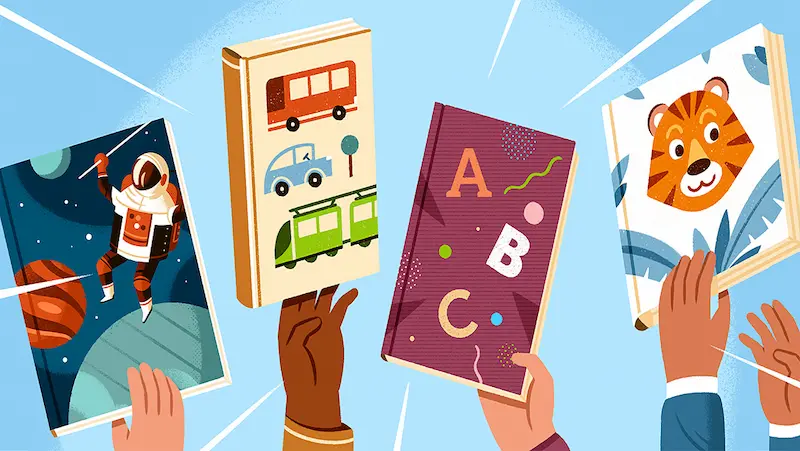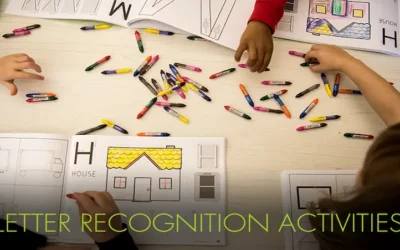Table of contents

Introduction
The traditional methods of learning and teaching do not go very well with the kids as they have a very short span of attention. Kids get bored if the teacher dictates any task to them. They find an interactive session as the best way to stay focused and involved. It helps them to acquire a set of skills along with their engagement in the class.
Nothing else can be more interactive than a card game. Concepts learned by playing a game, earning rewards, and making mistakes is an excellent ways of learning financial management.
Benefits of playing Card Games for kids
The benefits of playing card games have educational and emotional benefits. The kids learn communication skills and understand healthy competition and numbers crunching. Playing minute to win it games for kids offers a refreshing and exciting twist to traditional card games, providing numerous benefits such as improved hand-eye coordination, strategic thinking, and enhanced social skills through friendly competition.
- Cognitive Development – The kids learn memorization and recognition of various number patterns, innovative ways of finding solutions, and finding new ways to succeed.
- Numeracy and literacy skills – These involve keeping score, addition, subtraction, and comparison of numbers.
- Social Interaction and communication – Playing itself requires socializing. It fosters talking, team building, and friendly competition.
- Problem-Solving and Critical Thinking – Productive solutions to critical problems can emerge through brainstorming and games involve meaningful conversations. The game challenges the kids to think proactively about the moves of opponents and adjust their strategies accordingly.

Card Games for Preschoolers
- Memory – Keep the cards face down on the table players flip the cards turn by turn to match the pair of cards.
- Snip Snap Snorem – The pack of cards is dealt out to the players. The first player plays the card of his choice face-up in the middle of the table. The next player tries to match this card. If it matches, they call out “Snip.” If the next player can match this card, they call out “Snap”. If the next player also matches the card, they call out “Snorem”. This last player starts the next round. The player who runs out of the card first wins.

Card Games for early elementary
- Rummy – It can be played in a variety of ways with rules to suit different age groups. The aim of this game is to collect sets to earn points. King is high and Ace is Low. Shuffle the deck and deal 10 cards to each player. The players sort their cards. The next card is turned face up in the middle of the table to start the discard Pile. The remaining cards are placed next to the discard pile to form a draw pile. In each turn, the player either takes the top card from the discard or draw pile. Then put it on the top of the discard pile. Each player calculates the value of unmatched cards. If the knocker’s count is lower, he scores the difference between the two counts. If the knocker has no unmatched cards, it is called “Gin”.
- Cheat – The key to winning this classic game lies in your ability to keep a poker face. If you can trick your opponent, then you have a good chance of scooping the pool.
Card Games for Older Kids

- Ten or Twenty – Each player is dealt 5 cards and the remaining cards are kept face down in the middle of the table.The first player takes out the card from this pile and places it next to the pile with face up. The next player takes out a card from either of these piles and must use 3 cards to add up to ten or twenty. If it does not add up to 10 or 20, he must discard a card in either of the two piles. If the next player can make a set adding up to 10 or 20, they discard these 3 cards and pick up 3 from the face-down pile. Then, he discards 1 card to end their turn. The player with the greatest number of sets wins the game.
- Rule of 24 Card Game – Each player is dealt 4 cards from the deck and they must use all the 4 cards to create an equation with a solution of 24 using elementary operations that encourage the use of math and PEMDAS.
Top 5 engaging card games for kids

- UNO – It is a classic family card game where the players take turns matching the existing card in their hand to the current top card on the deck either by color or number.
- Apples to Apples – It is a hilarious game of comparisons. It consists of two decks of cards: Things and Descriptions. Each round, the active player draws a Description featuring an adjective (like hairy) from the deck. The other players secretly choose the Thing card in their hand matching that description and put it face down. The active player then chooses the card that best describes the description and the winning player becomes the next active player.
- War – It helps the kids learn the value of numbers and comparisons like greater than and less than. The players turn over the top card at the same time. Whoever has the bigger number, wins the race.
- Spot it – The players scan the pictures quickly, match any of the images in their hands to the card in the middle and place the card on the pile where the player found the match. The winner is the player who is out of the cards first.
- Check the Fridge – It is food themed which helps kids practice ninja-like math addition skills.

Educational Card Games for kids
- Codenames– It is a brief game and uses vocabulary skills. The player has to identify a spy word. It requires concentration and thinking skills.It promotes cooperation and vocabulary.
- Sleeping Queens card Games- The player that wakes the most sleeping queens wins the game. It is very interesting for adults too. It promotes arithmetic, strategy, and memory.
- Zeus on the Loose – It features Gods of Greek Mythology like Zeus, Apollo, and Hera. It is a fun game to teach math & players use numbered cards to climb Mount Olympus. It promotes Math and Strategy.
- Too Many Monkeys – It teaches counting to younger children. The players flip and swap the numbered cards to get the Primo, the monkey back into the bed. It promotes counting and strategy.
- Virulence – It is a biology card game through which players learn about viruses. You play as a virus and the aim is to collect genomes and helical. It is a blind bidding game where everyone can use bidding hands to replicate viruses or strengthen the existing ones.It teaches about Viruses, biology, and problem-solving skills.

- Wingspan – This game is about birds. You become an ornithologist to attract the best bird to the aviary. You learn about the bird’s scientific name, its nest type, wingspan, and so on. It promotes the knowledge of birds, nature, and science.
- Ion – A compound-building game- This game is about combining positive and negative ions to form neutral compounds. It is also a memory game in which the players pass their hands of cards to the opponent and try to recall what those were.It promotes science, physics, chemistry, and memory.
- Monopoly – It involves completing 3 different property sets in different colors by thinking strategically. It comes with 110 cards that let players do things such as charge rent and make tricky deals. Wild property cards help players build property sets. The players pay their debt with money cards.It promotes money lessons along with strategies making, negotiations and controlling emotions.
- Go Fish – It teaches question formation. It teaches new adjectives and colors.
- Jubilee Stories – The players lay down the cards forming a silly story. It promotes thinking, language skills, and story-making skills.
- Educational card games for kids offer a fantastic opportunity for interactive learning, providing a diverse range of games for kids to play that enhance their knowledge and critical thinking abilities in an engaging and enjoyable manner.

Family-Friendly Card Games
- Exploding Kittens is a family favorite and fun to play. It is a great game for casual family conversations. Math and strategy are not required. It is a quick game that can be played while waiting at the dinner table for food.
- Skipbo – This game can be played by all ages. It combines skill, strategy and fun. The strategy is to get rid of cards from Stockpiles. The young kids play this with older mentors. It helps learn the sequence of numbers in a fun way.
- Racko – It is one of the best family card games. It is very simple to understand and involves luck, strategy, and plenty of player interaction.
- No Thanks – It is a simple yet engaging fun game. Players try to have the lowest score at the end of the game. The biggest debate is if it is worth picking up the cards that even come at the cost of more chips.
- Family-friendly card games often incorporate learning games for kids, making them an ideal way for children to have fun while developing essential cognitive and communication skills in a supportive and enjoyable environment.
Conclusion
Playing card games is fun and can create a greater bonding among family members. They can spend time with fun and laughter. It promotes learning a powerful vocabulary, reduces stress, improves cognitive skills, and above all the kids can learn self-confidence, math, Social Sciences, and Sciences.
free coding games for kids are a fantastic resource that allows young learners to explore the world of programming and computer science in a fun and accessible way.
We all want our kids to be creative thinkers, speakers and make informed decisions. So, playing card games is an excellent and fun idea to start with. Let the kids think with their strategy about their moves of cards before we intervene. Understanding “what if?” various moves can help kids open with better reasoning abilities. Kids will learn to face a loss along with helping their teammates. They will comprehend the rules and learn to be independent.
Last but not least, the children would feel comfortable talking to their parents. This is all that is needed for greater family bonding. So, get those card games and get playing.
BrightChamps offers a banking game for kids, providing an interactive and educational experience where children can learn about money management, financial literacy, and basic banking concepts in a playful and engaging manner.
Ignite Brilliance with BrightChamps, Where Young Minds Flourish in Robotics, Finance, and the World of Coding.
Frequently Asked Questions
The kids develop motor and cognitive skills. They learn math, strategy, communication, and Science by playing card games. Above all, they develop a bonding with their parents and other family members.
The age required for such games is usually 3 +
Card games have numerous benefits like memorization, number and pattern recognition, and learning mathematical skills. These games require reasoning and decision making which can help keep the brain active and healthy.
We do have plenty of educational card games for kids like Go-Fish, Snap it Up, Jubilee Stories, 100 card games, War, Letz Talk, Sylla Balls, Letter Sound Hopscotch, etc.
Yes, the card games can be played with the whole family. In this era of technology, it is a fun way for families to come together and have a good time. Not only fun, but it is also a great way to have hearty laughter and improve cognitive development. It gives a chance for the family members to talk and feel comfortable in building rapport that gives a chance for parents to know a lot about their child which would not have been possible otherwise.


























